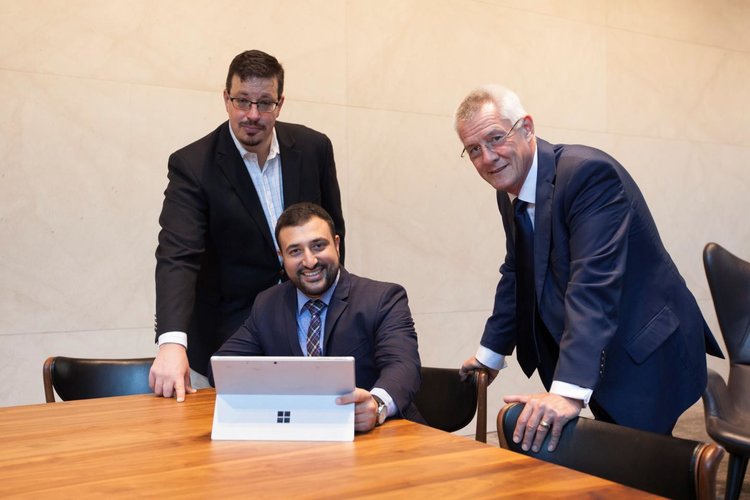Ajero’s David McLeod, Farzan Marfatia and Peter Walton
While concerns about Australia’s energy mix has been focussed on the closure of old coal-fired power stations, especially among politicians, there’s a $35 billion problem sitting off the coastline that a new Perth startup is hoping to tackle.
Just as power station reach the end of their productive life after 50 years, around 80 offshore oil and gas plants are also in a similar predicament and so far, only a handful have been decommissioned.
The total cost to decommission Australia’s fields over the next three decades is an estimated US$24 billion (AU$35bn)
A new startup, Ajero, the brainchild of three former energy sector executives, believes it has part of the solution.
Ajero’s software-as-a-service (SaaS) platform aims facilitate the decommissioning to clear oceans of abandoned offshore rigs.
Founder Farzan Marfatia said the current processes to decommission a rig are ambiguous at best, with a minefield of government regulation adding to the difficulties.
“We’re striving to bring consistency and logic to the planning and decommissioning process, while keeping the industry up to date with the latest technologies and methods available,” he said.
“Legislation calls for complete removal and rehabilitation. Literally, it means oil and gas companies must leave the title area how they received it.”
But Marfatia says that’s not always the best solution, with new environmental research suggesting sub-sea equipment turned into an artificial reef or marine habitat may benefit the environment, while excavation to remove the equipment can potentially cause more damage to the seabeds and marine habitats.
“There is some evidence fish stocks improve around pipelines and infrastructure. So, the question is whether complete removal is really the best solution,” the former project engineer said.
He enlisted two former colleagues, Peter Walton, now Ajero’s managing director, and David McLeod, CFO/finance manager, to help develop the software, which assesses each project against a range of regulatory and environmental issues in a fraction of the time it would normally take a consultancy – and at considerably less cost.
“If an operator wants to leave some structures in place when decommissioning, there are questions,” Marfatia said.
“What do they leave? What do they remove? And how likely is it to be accepted by the regulator? The Ajero software platform can provide the solutions.”
Ajero’s approach to tackling regulatory frameworks has also attracted interest from other industries with the company recently signing agreements with two global management consulting firms to explore its use in legal and insurance sectors.




















Trending
Daily startup news and insights, delivered to your inbox.